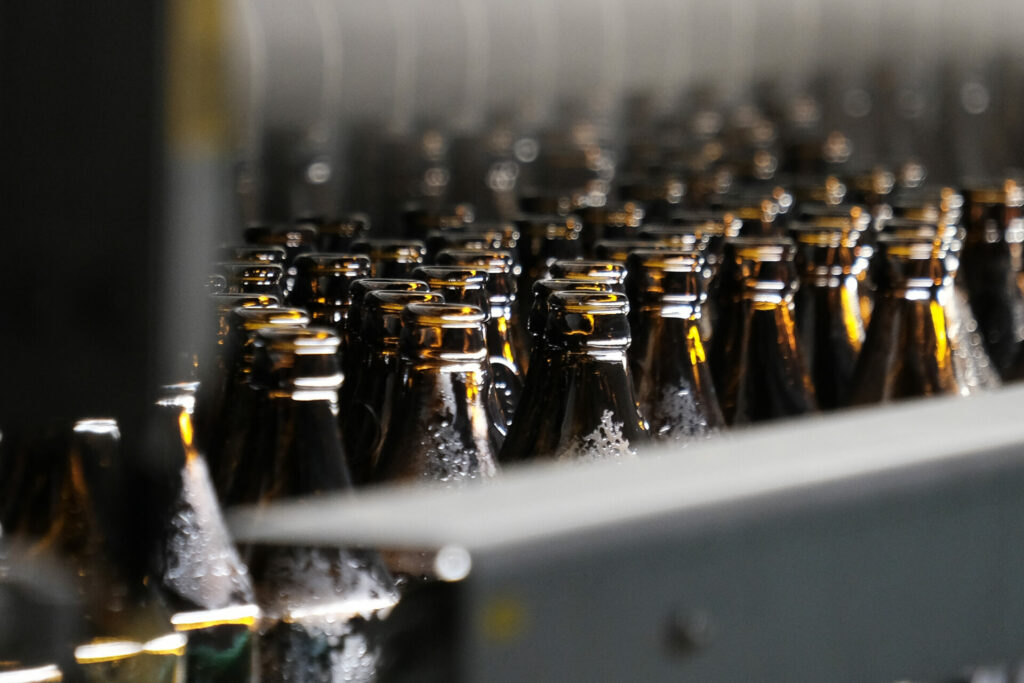As fertiliser factories are shutting down due to energy costs, a shortage of concentrated CO2 is looming, and brewers and other food companies are sounding the alarm that their trade will be particularly affected.
After a two-year absence due to the Covid-19 pandemic, the world's most famous beer festival, Oktoberfest, has finally returned. Until 3 October, more than 7 million litres of beer will be served in 14 large beer halls - as well as in numerous smaller tents and stalls.
But a dark shadow hangs over the festival. German brewers are sounding the alarm: a major CO2 shortage is looming, which could well mean less beer flowing in the coming months. Only 30% to 40% of normal amounts of CO2 are now available, according to brewers and reported in the De Standaard.
More expensive pints?
It may sound paradoxical: just as climate change is accelerating due to excess CO2 in the air, the food industry is suffering from a shortage. This is because CO2 in the air is under-concentrated and cannot be easily captured. A chemical process is needed to make CO2 liquid and concentrated. Only in that form is it usable for all kinds of applications.
Liquid CO2 is a by-product of ammonia, a basic ingredient of fertilisers, which requires natural gas. Due to sky-high gas prices, a lot of fertiliser companies shut down production, which means no liquid CO2 is being produced either.
"At the moment, no Belgian brewer has yet to stop production," said Krishan Maudgal, director of the non-profit organisation Belgian Brewers. "But if this state of affairs continues, we do face a huge problem. CO2 is not only necessary for the pungency in beer, it also prevents beer from coming into contact with oxygen during the brewing process, causing a rapid decline in quality."
According to Maudgal, some fertiliser manufacturers have already restarted part of production, just to make the required CO2 they supply to food companies. "However, they pass on the higher costs to the brewers."
Related News
- Four in ten Belgian food companies too weak for another economic shock
- Belgium in Brief: A diet that makes you thinner? It's called inflation
Melle-based brewery Huyghe, known for Delirium, has already been in the news for taking legal action against its Dutch supplier, which suddenly multiplied the CO2 price by thirteen. If Huyghe did not pay the amount, deliveries would have been stopped. Huyghe won the case: the supplier has to keep the prices from the current contract.
AB InBev, the world's leading brewer, said it has no problems yet, but is monitoring the situation very closely. At Kasteel Brewery Vanhonsebrouck of Izegem, junior CEO Michiel Clyncke said the price of CO2 has doubled. "The CO2 we use does not come from fertiliser manufacturers, but is extracted from the production of biogas and ethylene."
Should we prepare for higher beer prices? Maudgal does not want to comment on that yet. "The higher CO2 price comes on top of all the other price increases, those of packaging materials, barley, energy, and so on. At the same time, turnover at brewers has not yet recovered to pre-pandemic levels."
But higher energy costs mean consumers have to make savings, Maudgal also points out. Charging the extra cost could have the effect of consumers dropping out.
Food industry also affected
It is not only brewers who need concentrated CO2. "All sparkling drinks are made with CO2," said Nicholas Courant, spokesperson for food organisation Fevia.
CO2 is also involved in the production of many other food products. Courant summarised that: "CO2 is needed to keep prepared meals fresh, as is the production of dry ice, which is used to transport food and medicines. Slaughterhouses use CO2 to stun animals. Therefore, if there is too great a shortage, butchering can no longer be carried out."
Jos Claeys, CEO of Belgian Pork Group, the largest meat processing company in Belgium, agrees with the problem: his company's CO2 costs have increased fivefold.
"We now try to stun the animals with electricity and use CO2 mainly in the pre-packing department, where we pack the meat for shops. There too, we are looking for other techniques to vacuum pack." Nevertheless, he stresses that meat supply is not currently compromised.

